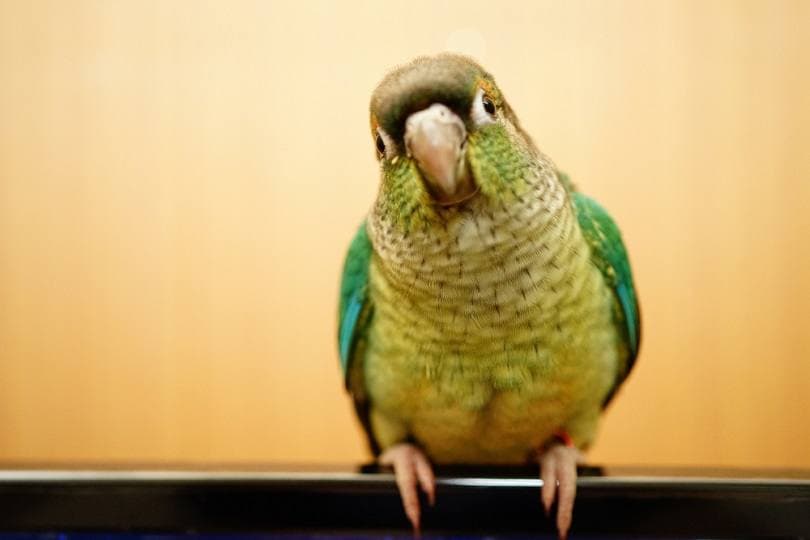Locating and capturing your pet bird after an escape attempt is a bit more complicated than with other pets. Even if you find your lost bird, there is no promise that you’ll be able to capture them.
Losing your bird is a nightmare for several reasons. Many captive birds don’t know how to survive in the wild, and most people don’t know how to feed lost pet birds like they would a dog or cat. People are also far less likely to report the lost animal.
Plus, lost birds can cause havoc in the environment if they survive. For instance, in some areas, non-native breeds can be found eating food that native birds should consume.
Getting your pet bird back is crucial for your happiness and for protecting your bird and the environment. Below, we’ll discuss a few steps that you can take to retrieve your lost bird.
The 7 Tips to Follow if Your Pet Bird Flew Away
1. Prevention
If your bird has already flown the coop, it is a bit late for prevention. However, if you’re only thinking about what you would do if your bird got loose, know that prevention can go a long way toward preventing this problem.
First, you shouldn’t leave any windows or doors open when your bird is out and about. Double-check all entrances before releasing your bird. Often, birds fly out through forgotten open windows. Second, you should let everyone in your home know when the bird is out. It is best to schedule the bird’s free time so that everyone knows when to keep the windows closed.
You should also use a “double door boundary.” In other words, you should only release your bird in inner rooms, like bedrooms. Don’t put your bird in the same room as an outside door. If someone opens one of these doors, your bird can easily escape.
However, if there are two doors and a room between your bird and the outside, the odds of them escaping are relatively low. Many people also clip their bird’s wings. This usually doesn’t affect a bird’s ability to get around inside a home.
But it will prevent them from flying, which is essential should they get out. In other words, it prevents the bird from flying long distances but doesn’t affect their ability to glide to and from pieces of furniture.
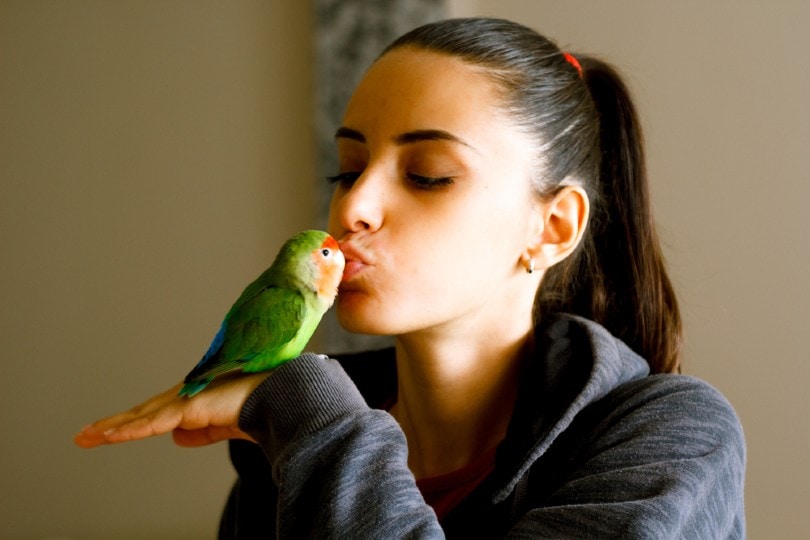
2. Respond Immediately
If your bird escapes, responding quickly is essential to their retrieval. Birds can travel long distances in a short amount of time, and your odds of catching them go down dramatically the farther away they get.
Utilize everyone available to help you locate and capture the bird as soon as they escape. You can delegate tasks so that more than one rescue operation occurs at once. Searching for a bird can be challenging, so it is vital to have as many eyes out there as possible.
As for the tasks that everyone should be doing, here is a quick list.
- Scan the Nearby Area. You should ask everyone available to search nearby trees, poles, and other perches. Your roof is often a familiar spot for pet birds, especially if they try to get back into your house. Most birds won’t be able to relocate the window or door and may end up on the roof. All trees and structures should be scanned 360 degrees around. Even if your bird is brightly colored, it is relatively easy for them to hide behind leaves.
- Gather Capturing Equipment. Once you find your bird, you’ll need to capture it. It is best to have equipment on standby. You don’t want to find your bird only for them to fly away while you’re scrambling for nets. Have someone collect all the available bird nets and fishnets. Lightweight towels are also helpful, especially if nets are not available.
3. Think Like a Bird
If an immediate scan of the area doesn’t reveal your bird, you can try a few other things.
Many birds are confused when they enter the outside world. Flying in trees is much different from flying inside a house, so it is often difficult for birds to get around at first. For instance, most captive birds don’t understand how to fly down from the top of a tree.
Therefore, it isn’t uncommon for birds to get stuck on top of different objects. Double-check light poles and tall trees.
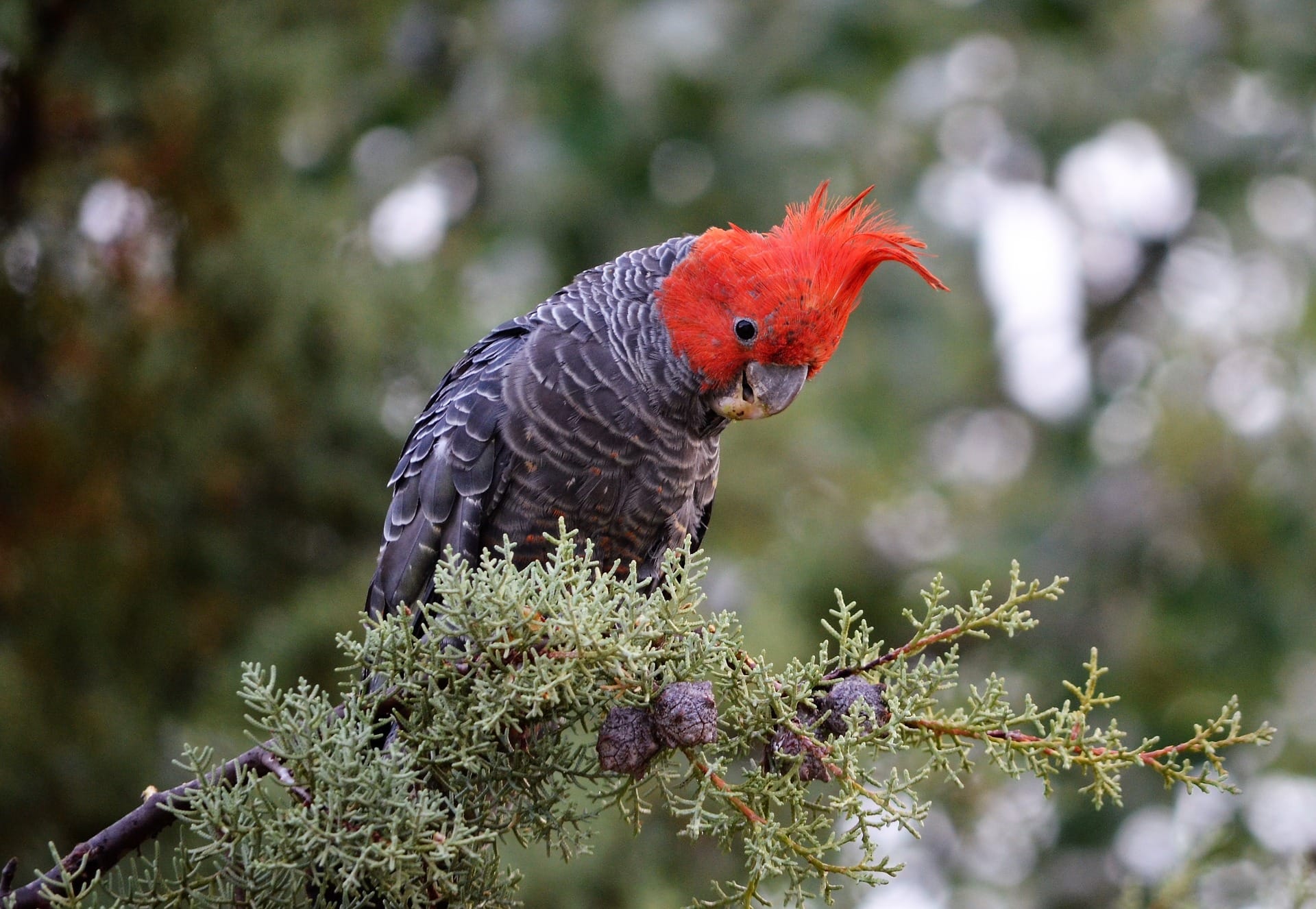
4. Stay Outside
The bird’s owner should stay outside and preferably wear bright clothing. A bird does not know what the house looks like and has no way to identify it from the air. Even if they want to get home, they likely won’t be able to find it.
The one familiar landmark you can provide for your bird is you. Therefore, it is crucial to ensure that you are outside as much as possible. If your bird happens to fly over your house, they may see you and return. Many captive birds will fly back to their owners if they find them since they don’t want to remain in an unfamiliar environment.
If you have a bird call that your pet is familiar with, use it often. Your bird’s hearing isn’t extraordinary, but they may hear you if they’re in the area.
- Related Read: How to Form a Bond With Your Pet Bird (5 Proven Methods)
5. Use the Cage
Another landmark that your bird can be provided with is their cage. They may not know what the roof of their house looks like, but they will know what their cage looks like. Plus, they know that their cage has food, which will come in handy.
As soon as your bird flies off, you should place their cage near the area. If your bird flew through a window, place the cage near the window. Sometimes, birds will locate the cage and walk right back into it.
Preferably, don’t set the cage on the ground. It is best to hang it; that way, it looks like it does indoors. If this isn’t possible, put it on a raised piece of furniture, like a chair. Remember, your bird may not be good at flying downward.
Be sure to add food and treats to the bird’s cage. Delegate someone to stand near the cage in case the bird comes back. Most captive birds will try to return if they get the chance. When the bird flies back into the cage, it is essential not to run up and scare them. Fast movements can scare the bird and make them fly away again.
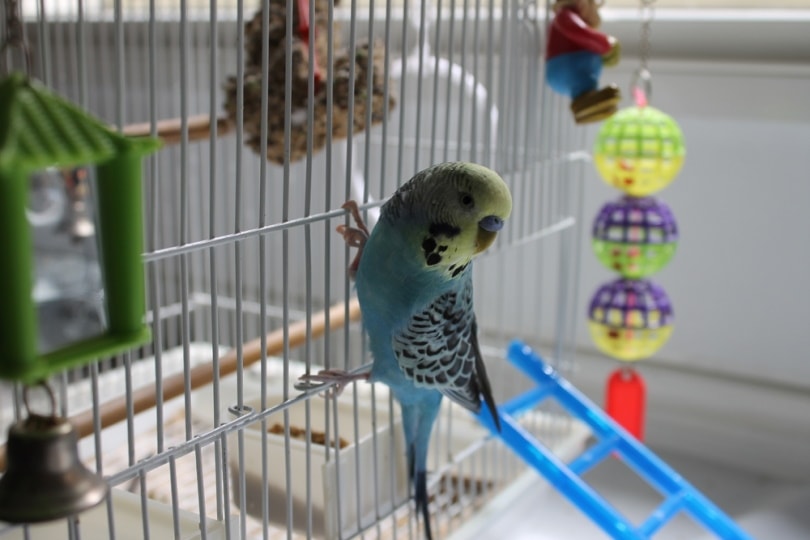
6. Utilize the Community
If you’ve waited around for your bird for much of the day, it is time to go to Plan B. If your bird hasn’t returned or been spotted within a couple of hours, it is likely that they became scared and flew off in a random direction. In that case, they likely won’t be able to find their way back.
You should alert the neighbors of your missing bird. You can do this the old-fashioned way by going door to door, but social media is often a more effective strategy. If you have a community Facebook page, you can use it to post an alert about your missing bird. Put up signs as well, though they can be less helpful.
Request that spotters don’t try to catch the bird. Instead, have them contact you with the location. Head there with the bird’s cage and a few capture items. You can offer a small reward, which often prompts local children to look for the bird. In many cases, this is quite exciting and fulfilling for the children, so they are often some of the best bird spotters.
Alert local vet clinics, bird clubs, and shelters. While most shelters don’t take in birds, many people will try to bring lost birds to them. Therefore, if they know that you’re looking for a bird, they can contact you right away.
7. Wait
After you’ve completed all these steps, there isn’t much else that you can do except wait. Luckily, the chance of finding your bird after the first day isn’t terrible. During the first few hours of freedom, birds are either very scared or highly excited. These feelings can cause erratic behaviors of all sorts. They may fly around randomly and ignore where they are going.
By the second day, most birds will start to calm down. They may notice landmarks, such as you or their cage. In many cases, birds that were initially excited may begin looking for their homes. Around the third day, the birds will start to get hungry. Most won’t find food in the wild, so they’ll begin looking for places they know food is located, like their cage.
Even if birds don’t want to return to captivity, they will often fly back to their cage if they can find it. Birds that can’t find their cage or owner may fly to a random person. Most birds associate people with food. At some point, any human will do. If you’ve alerted your neighbors, one of them may call to report your bird.
Most are easily caught at this point. Even birds that have been gone for weeks may suddenly decide that they don’t like the outdoors anymore and fly to a random person.
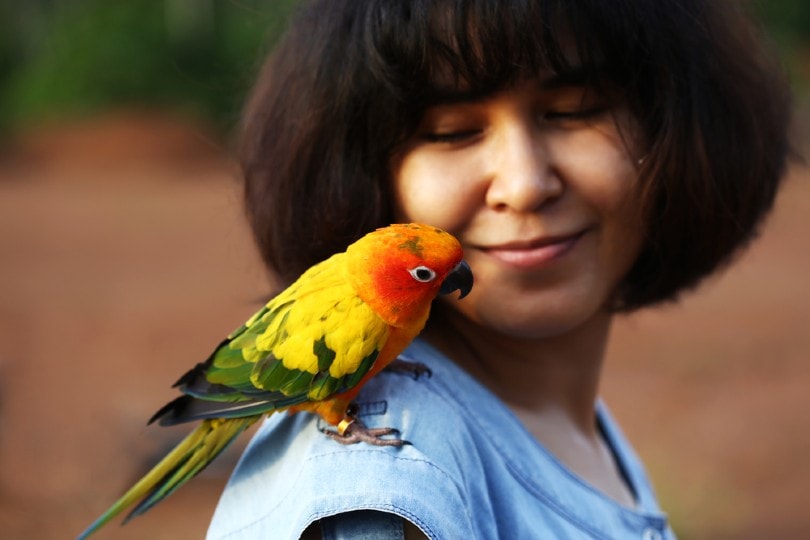

Final Thoughts
When your bird escapes, it is normal to feel a sense of dread. Luckily, there are many steps that you can take to capture your bird again. Typically, the bird won’t want to stay outside for long. Your job is to help them return. This can be accomplished by using landmarks such as yourself and the bird’s cage. You can also try calling the bird, as they may be able to locate you based on your voice.
Catching birds that stay around your house is often straightforward. Most will fly back to their cage if given a chance. The problem arises when the birds fly erratically after getting out. In that case, they may not be able to locate you or their cage. A careful search around your home likely won’t turn up any signs either.
Luckily, even birds that fly away from home can be captured. In many cases, they will get hungry after a few days and begin flying to people. If you’ve informed your neighbors of the bird’s disappearance, there is a good chance that one of them will locate the bird during this period.
The most important part of capturing your feathered friend is staying calm and working through these steps. Even if the first few don’t work, the next one might! If you can enlist a few people to search, your chances of getting your bird back increase substantially.
Featured Image Credit: Jida Xu, Pixabay
